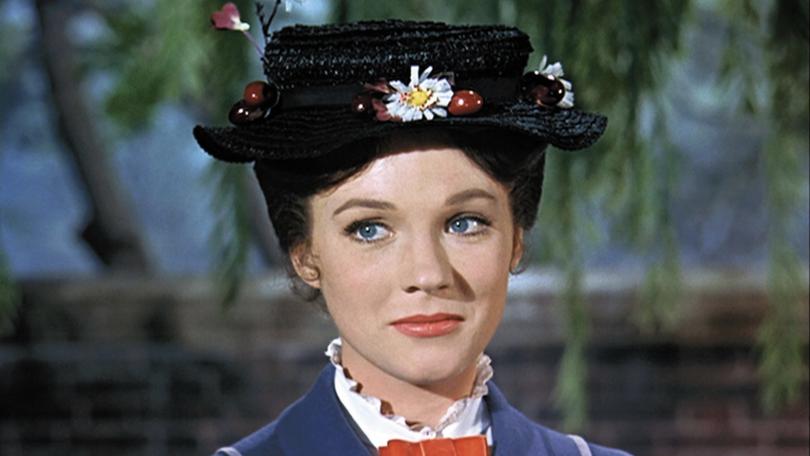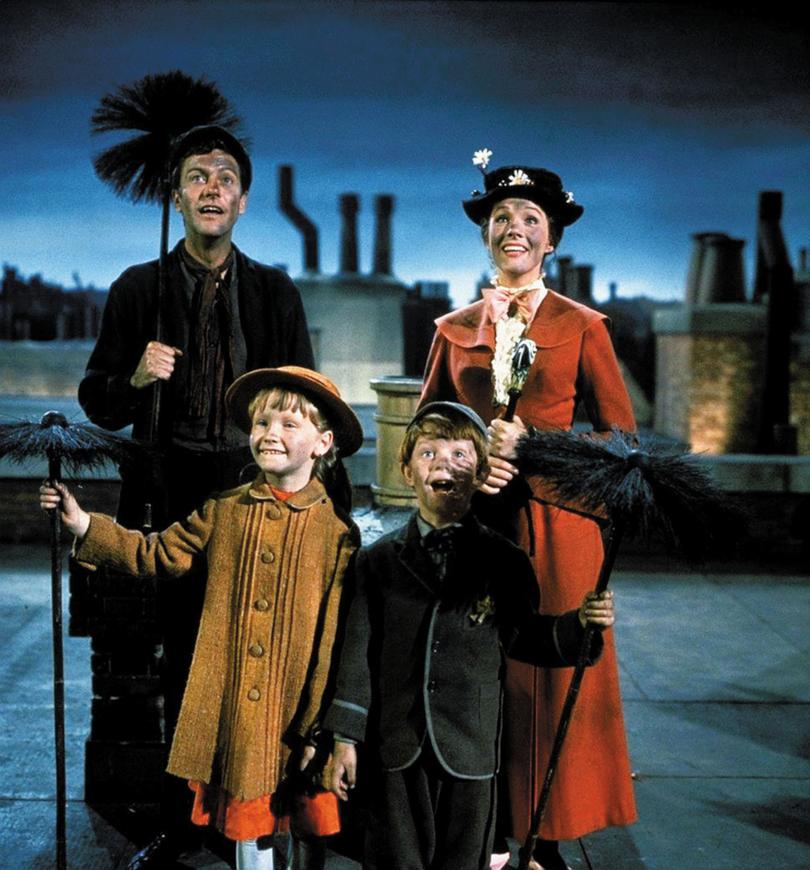Mary Poppins reclassified in the UK over offensive language
The British film classification board has upgraded Mary Poppins’ rating to PG over the use of an offensive word in the Disney classic.

The 1964 Disney classic Mary Poppins has been reclassified by British censors over “discriminatory language”.
Mary Poppins is to be re-released in UK cinemas for its 60th anniversary, which meant it had to be resubmitted to the British Board of Film Classification which gave it a PG rating under current guidelines. It was previously classified as U, the equivalent of which in Australia is G.
The board said two uses of the word “hottentots” pushed it into a PG rating because the language was not condemned on screen, a spokesperson told the BBC.
Sign up to The Nightly's newsletters.
Get the first look at the digital newspaper, curated daily stories and breaking headlines delivered to your inbox.
By continuing you agree to our Terms and Privacy Policy.“Hottentots” is a term which was first recorded in the late 17th century and was used by white Europeans to describe the Khoikhoi peoples of South Africa and Namibia. It was used derogatorily against people with black heritage.
In the film, the word is spoken twice by the character of Admiral Boom, including as a reference to children whose faces had been darkened with chimney soot.
A PG rating advises that parents should consider whether the content is suitable for their child.

The word “hottentot” also appeared in Mary Poppins author, the Australian-born P.L. Travers’s books. According to 2019 article in The New York Times, the 1952 novel Mary Poppins in the Park, there is a line in which Mary says to Michael, “I understand that you’re behaving like a hottentot”.
Travers’ first Mary Poppins novel, published in 1934, also used the term “pickaninny”, an offensive term to reference a black child. The book was in 1980 banned from the San Francisco public library over the reference, which led Travers to rewrite the chapter in a 1981 reprint, changing the “pickaninny” character to an animal.
Travers said about the revision, “I have done so not as an apology for anything I have written. The reason is much more simple: I do not wish to see Mary Poppins tucked away in a closet.”
The 1964 Mary Poppins movie starred Julie Andrews as the magical nanny who descends from the sky to look after the Banks children. It won five Oscars including for Andrews. Emily Blunt starred in a sequel, Mary Poppins Returns, in 2019.

